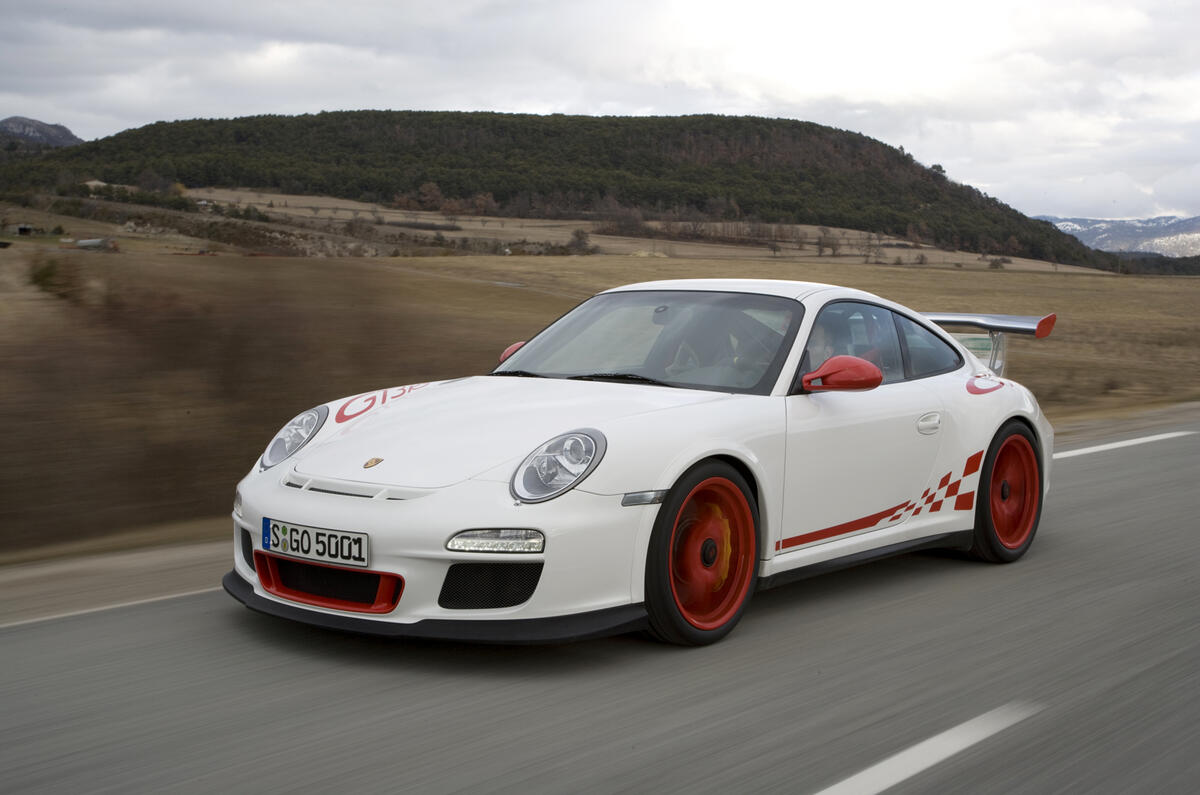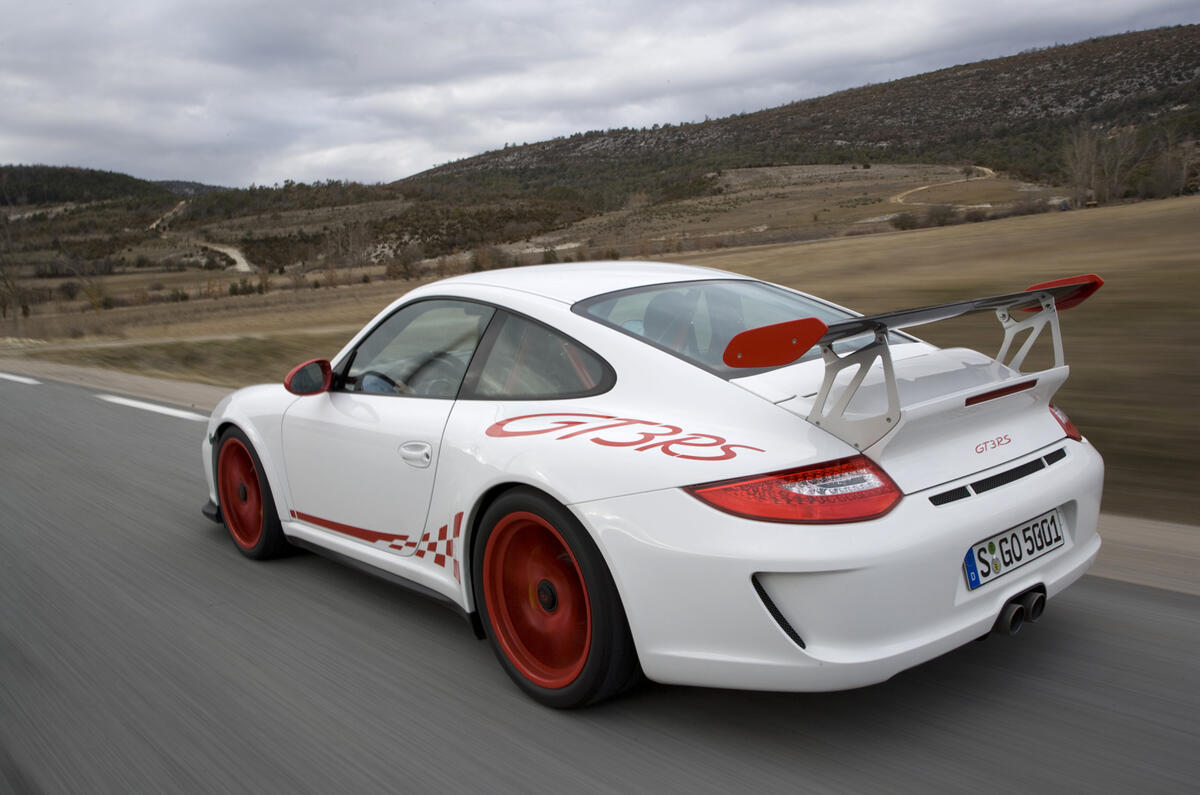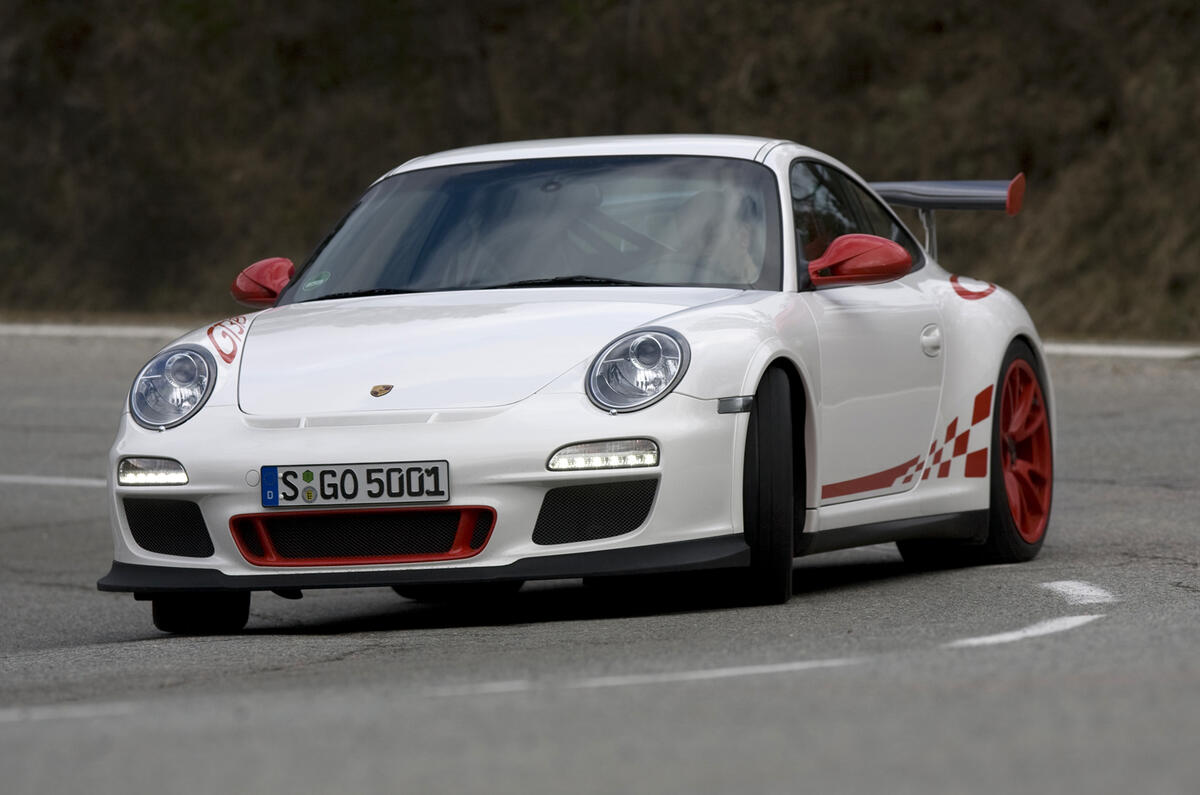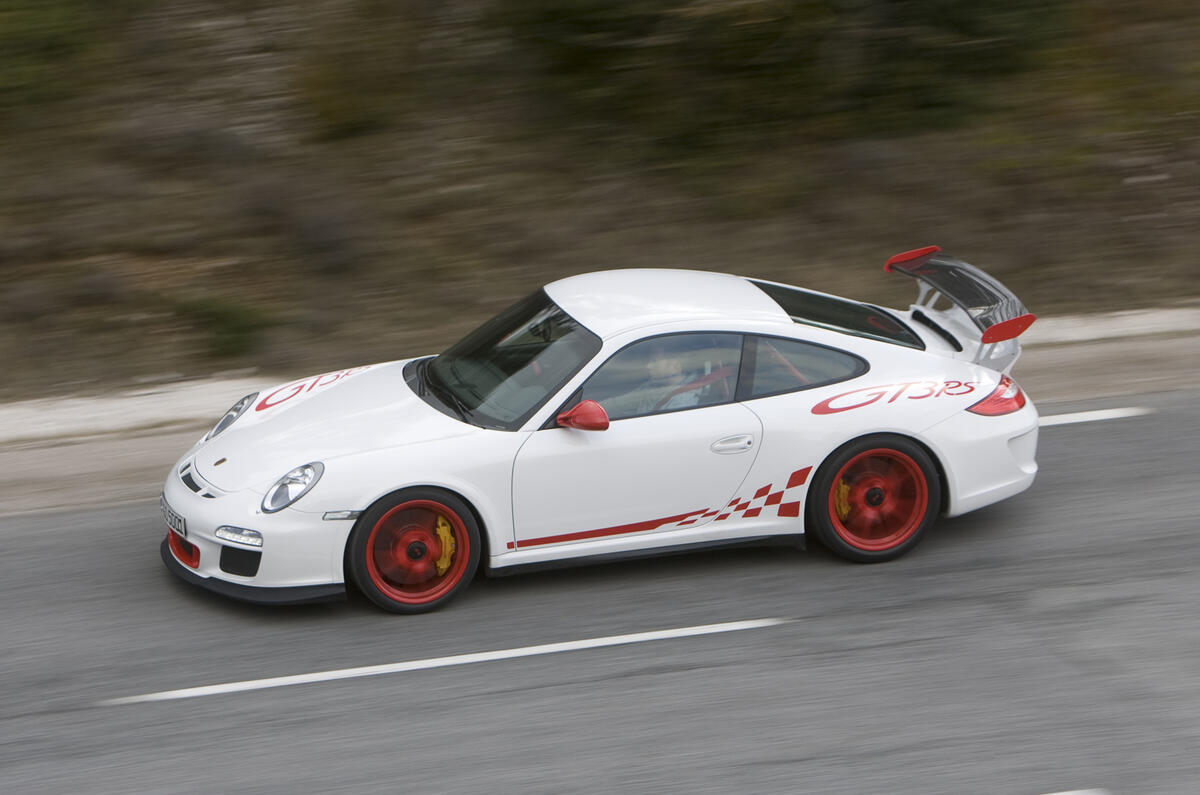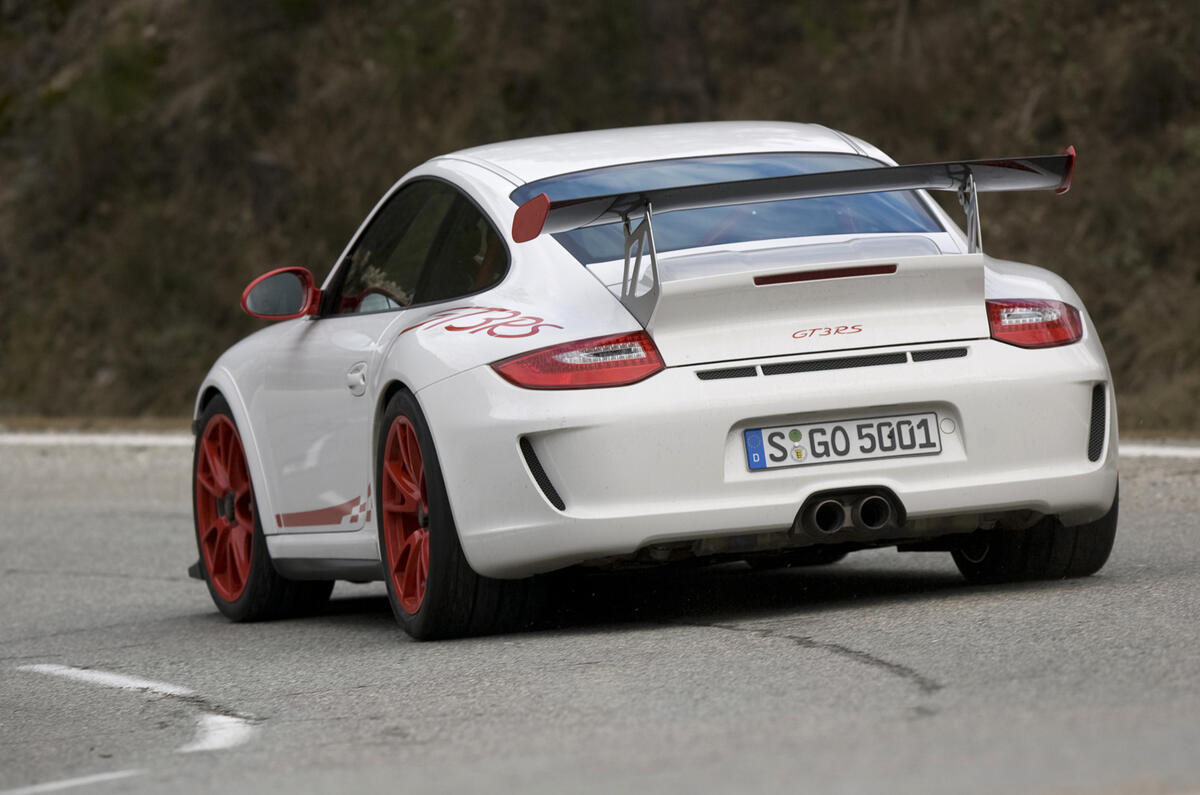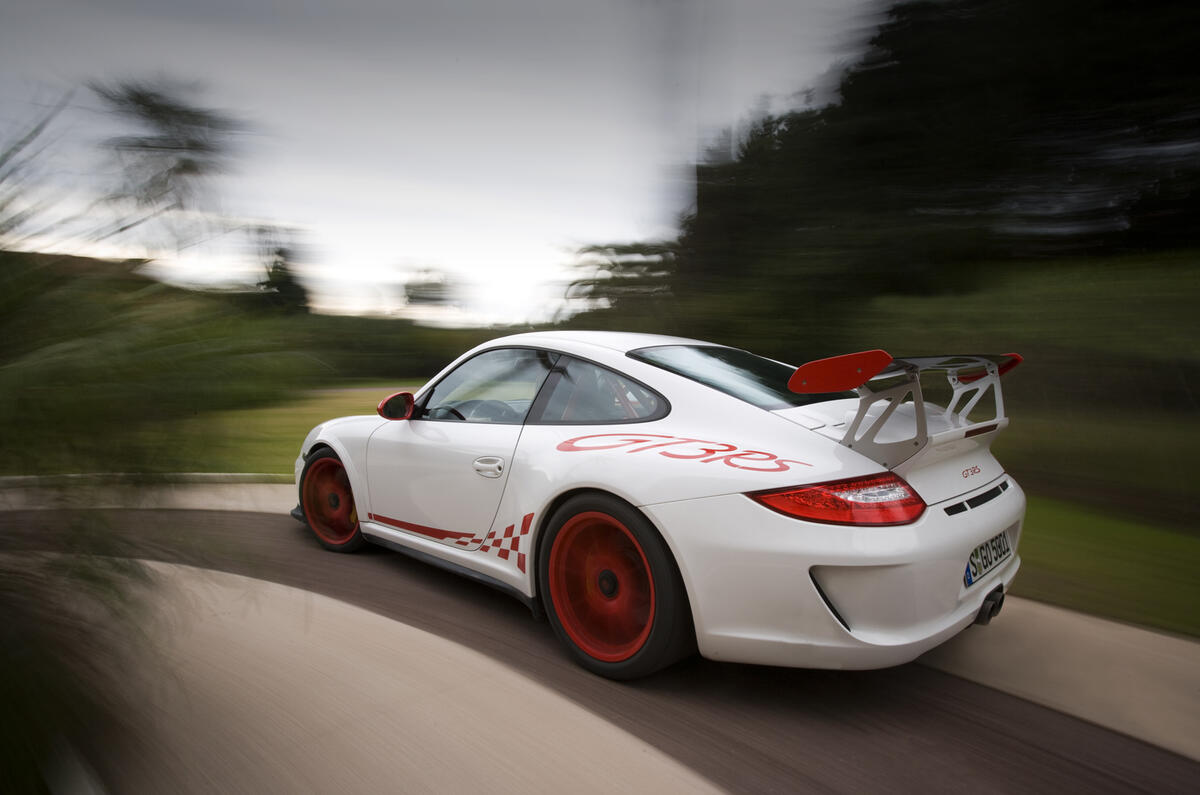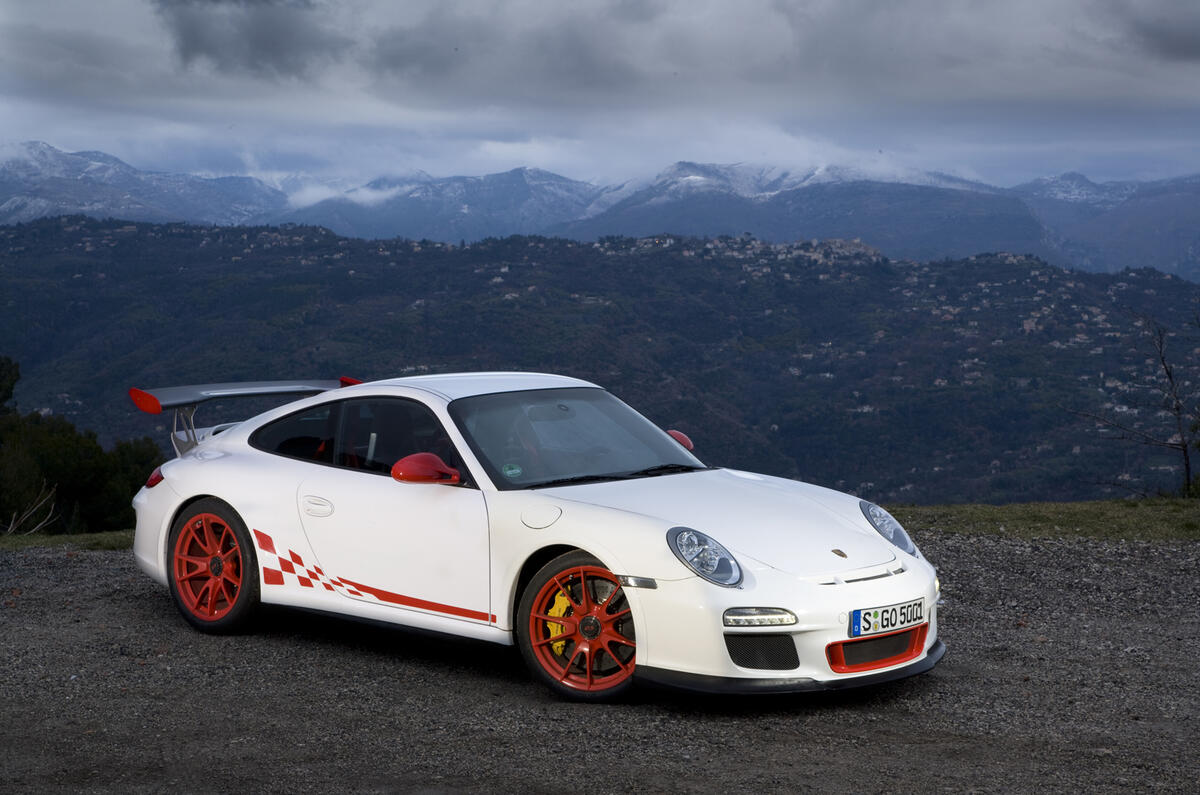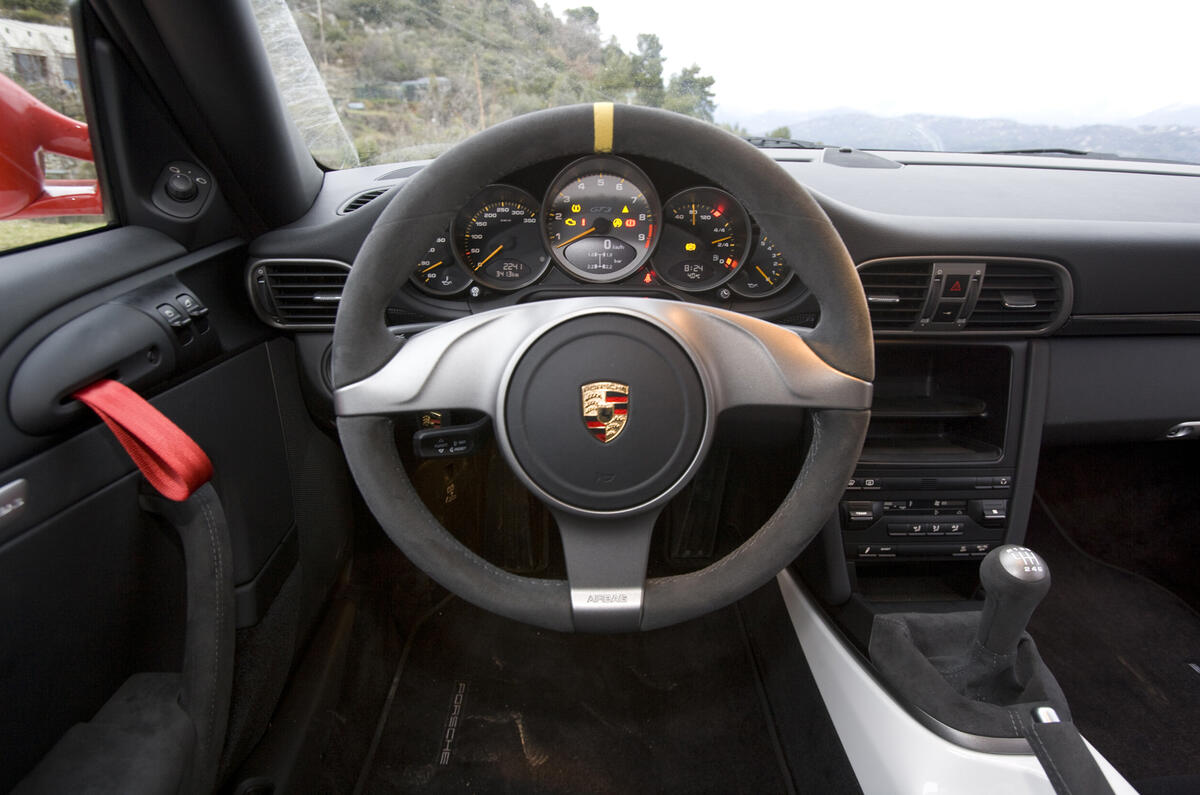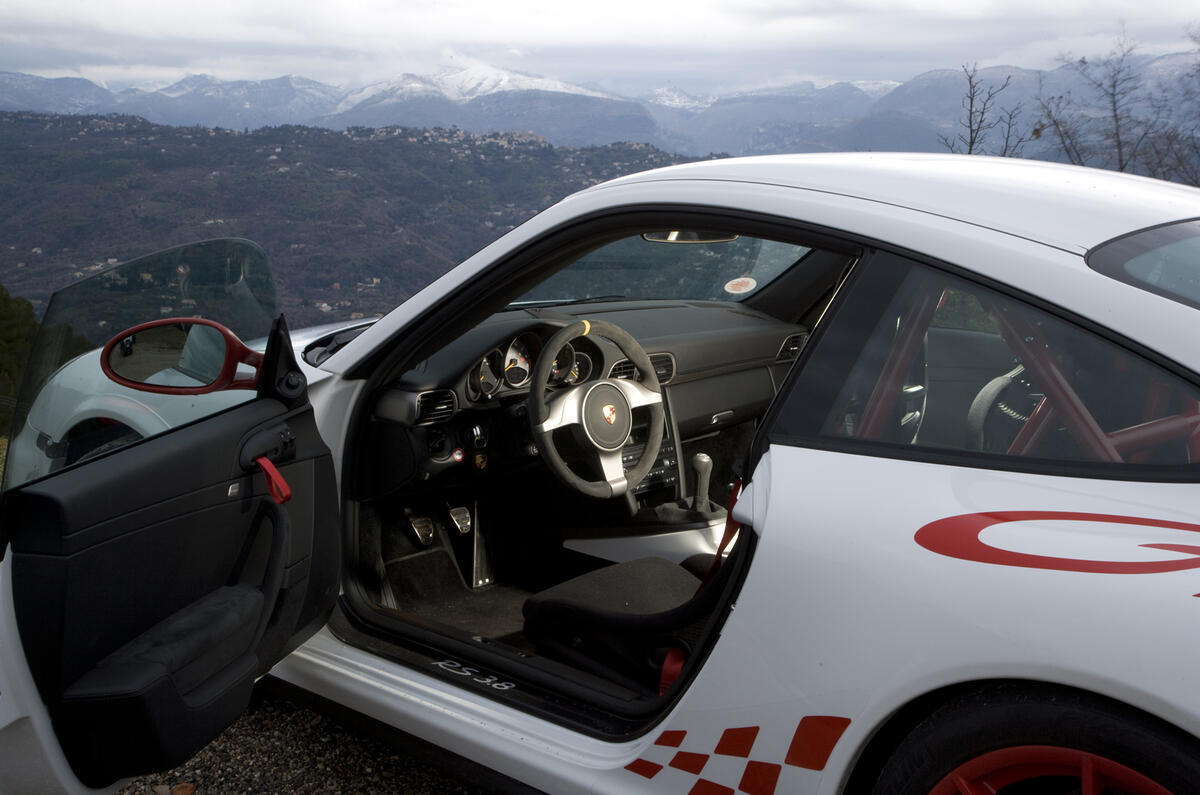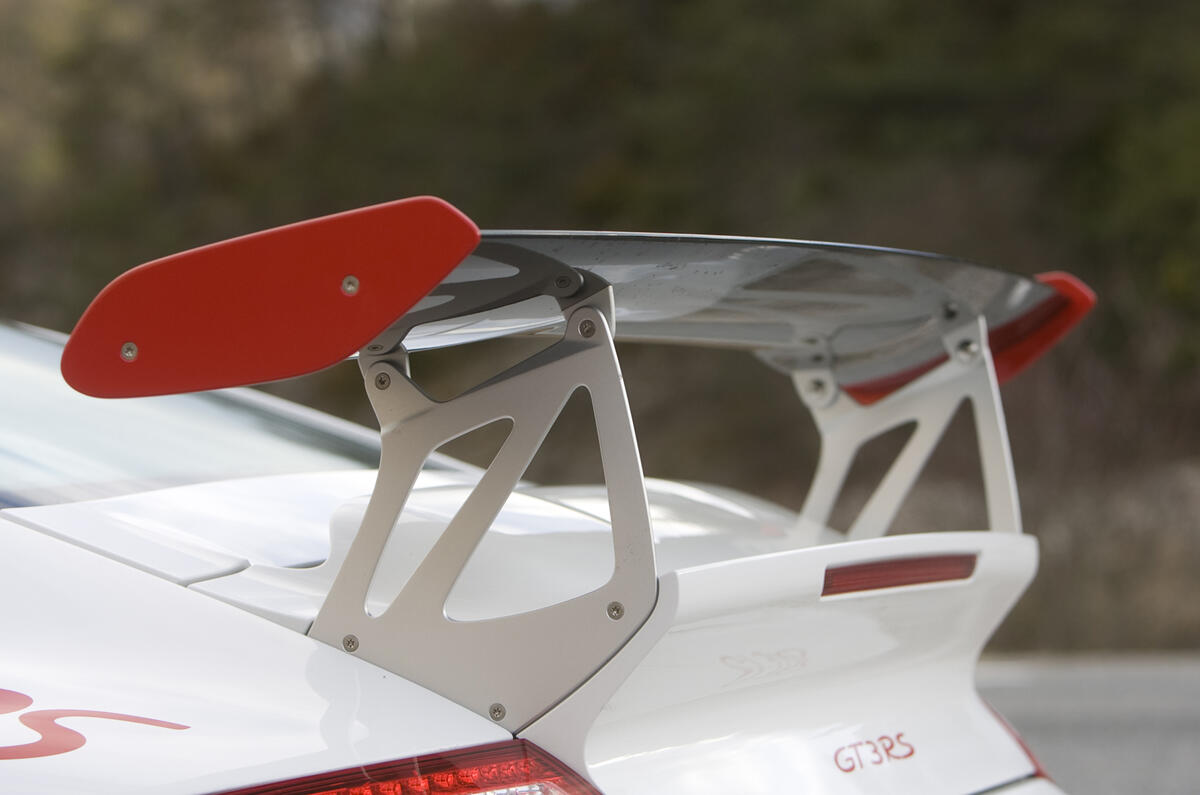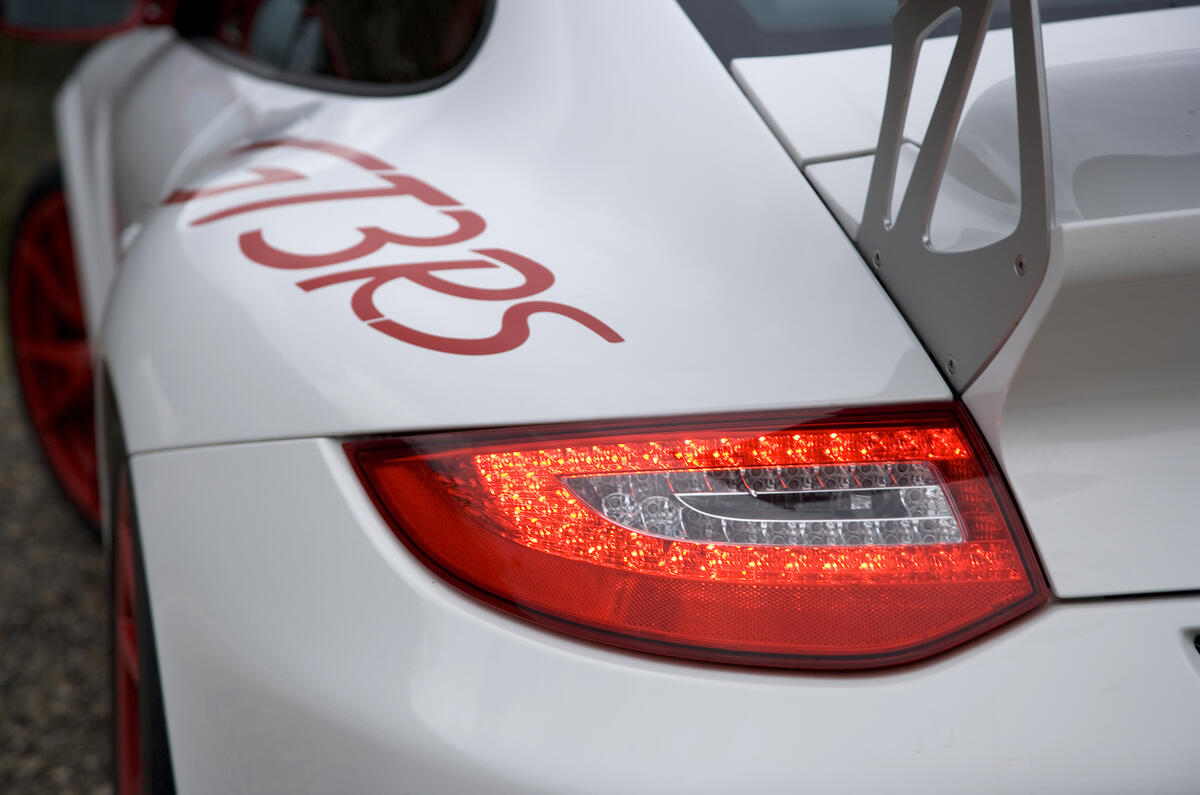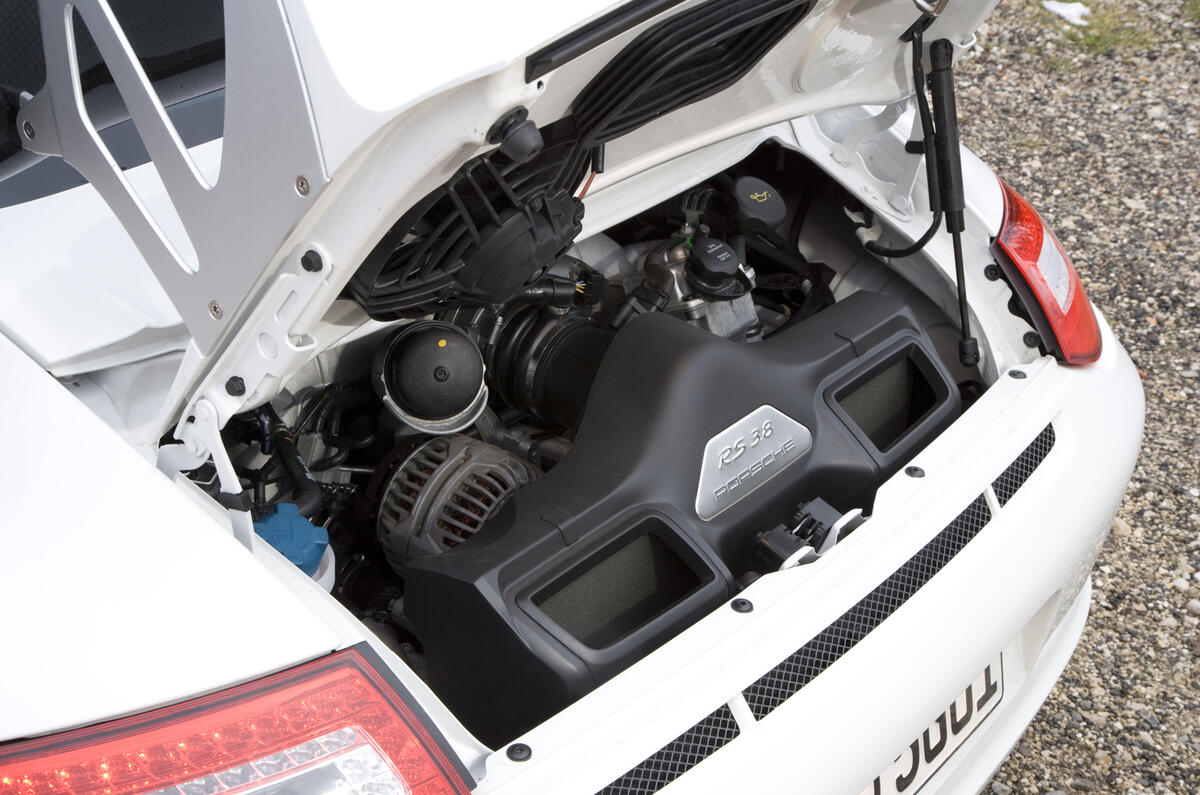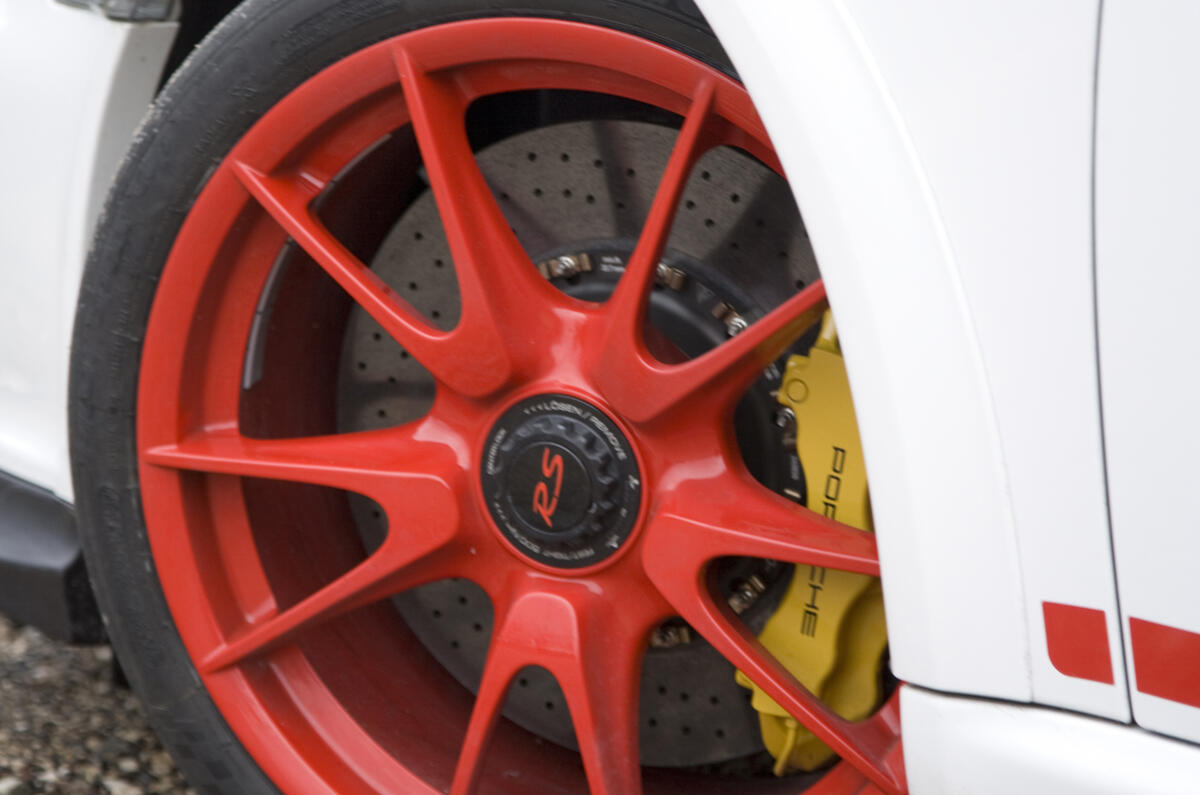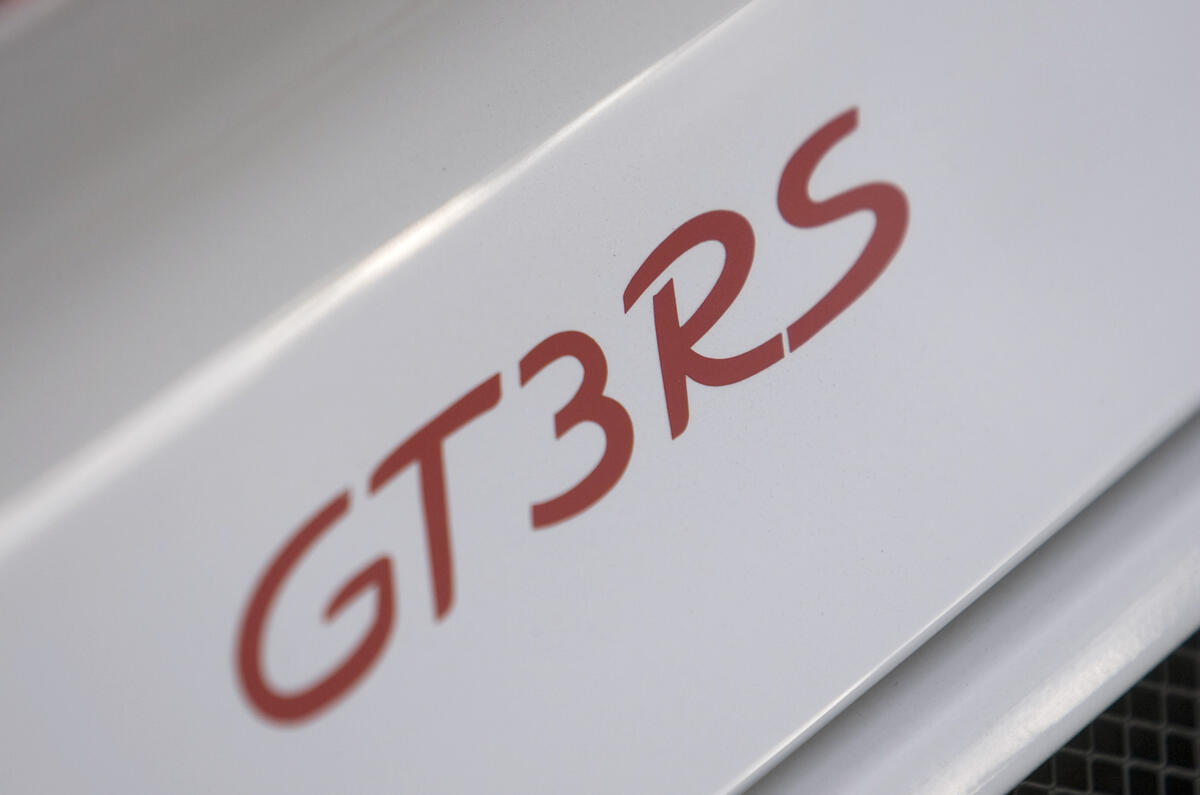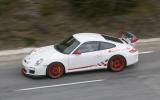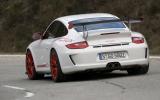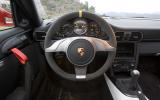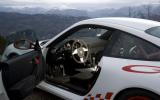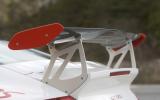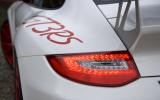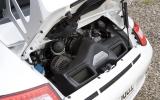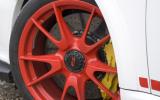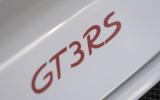Okay, so this is the latest Porsche 911 GT3 RS – the gen-2 997, meaning a 3.8-litre block with vario-cam.
As before, the GT3 RS gets wider rear arches than the regular GT3, and a plexiglass rear window. But this time Porsche has gone further, answering criticism that (in road trim) the two models weren’t different enough.
So there is more punch from the engine - 444bhp, a 15bhp gain. And for the first time, the 44mm-wider rear body is accompanied by a 26mm extension to the front. There are many other detailed changes, which we’ll come to later.
As always when driving a GT3 RS, it's difficult to concentrate on anything else. Not because it is especially demanding, in many ways it is a surprisingly easy car to drive, but because it is so all-consuming.
There is the noise, a wonderful mixture of mechanical whirs and induction gasps. Next to the GT3, not only do you hear more (because of that rear window), but also the sound is different. The RS gets a titanium exhaust (lighter and with different resonant properties), and uses a single-mass flywheel (also lighter). Together they produce a more irregular, unsettled idle, and a faster throttle response.
But it is the feel of the thing that makes the GT3 such a spectacularly enjoyable car to drive (even more so in RS trim). Personally I think it has one of the best steering systems of any car on sale today - feelsome, accurate and with ideal weighting, whatever the corner speed.


